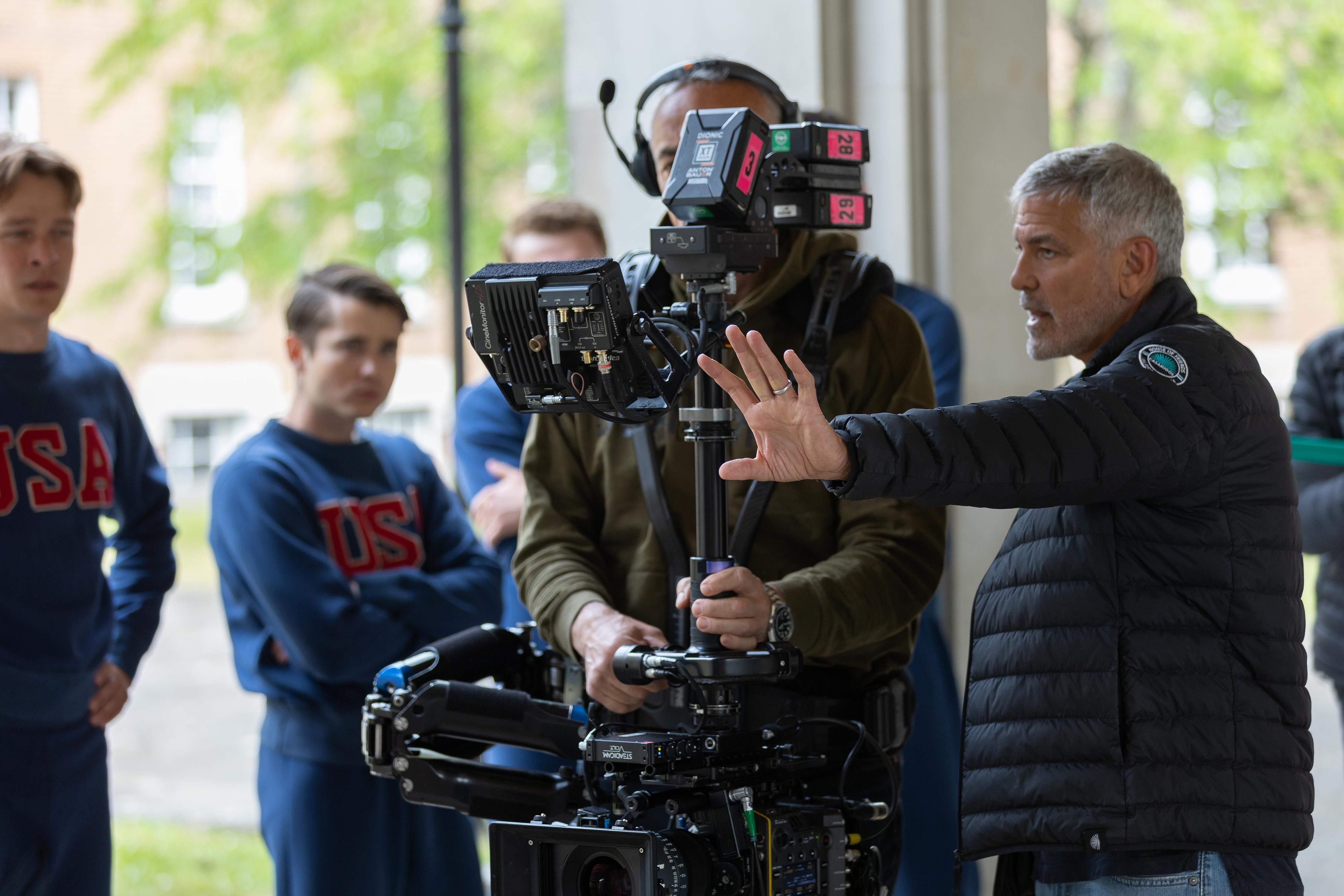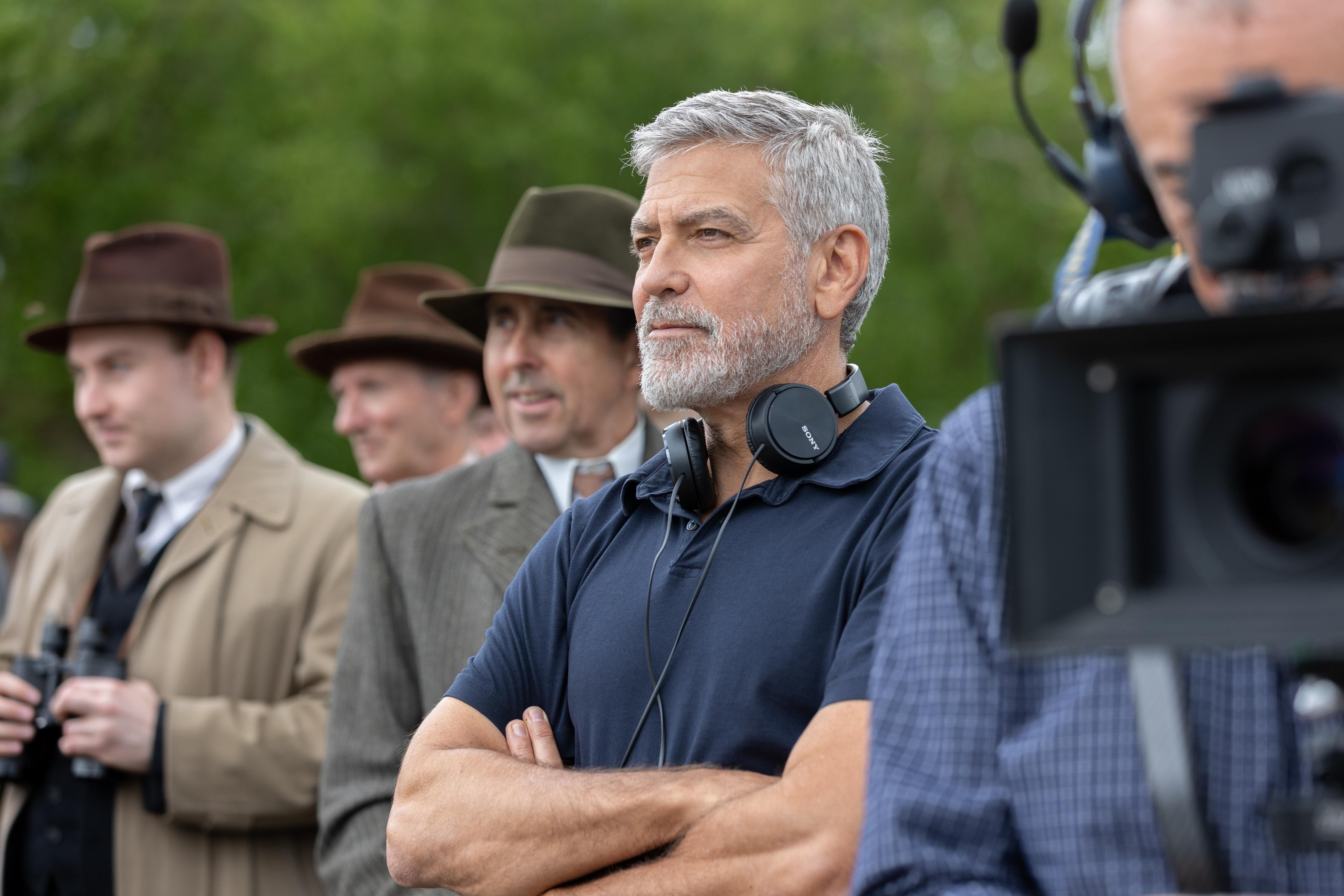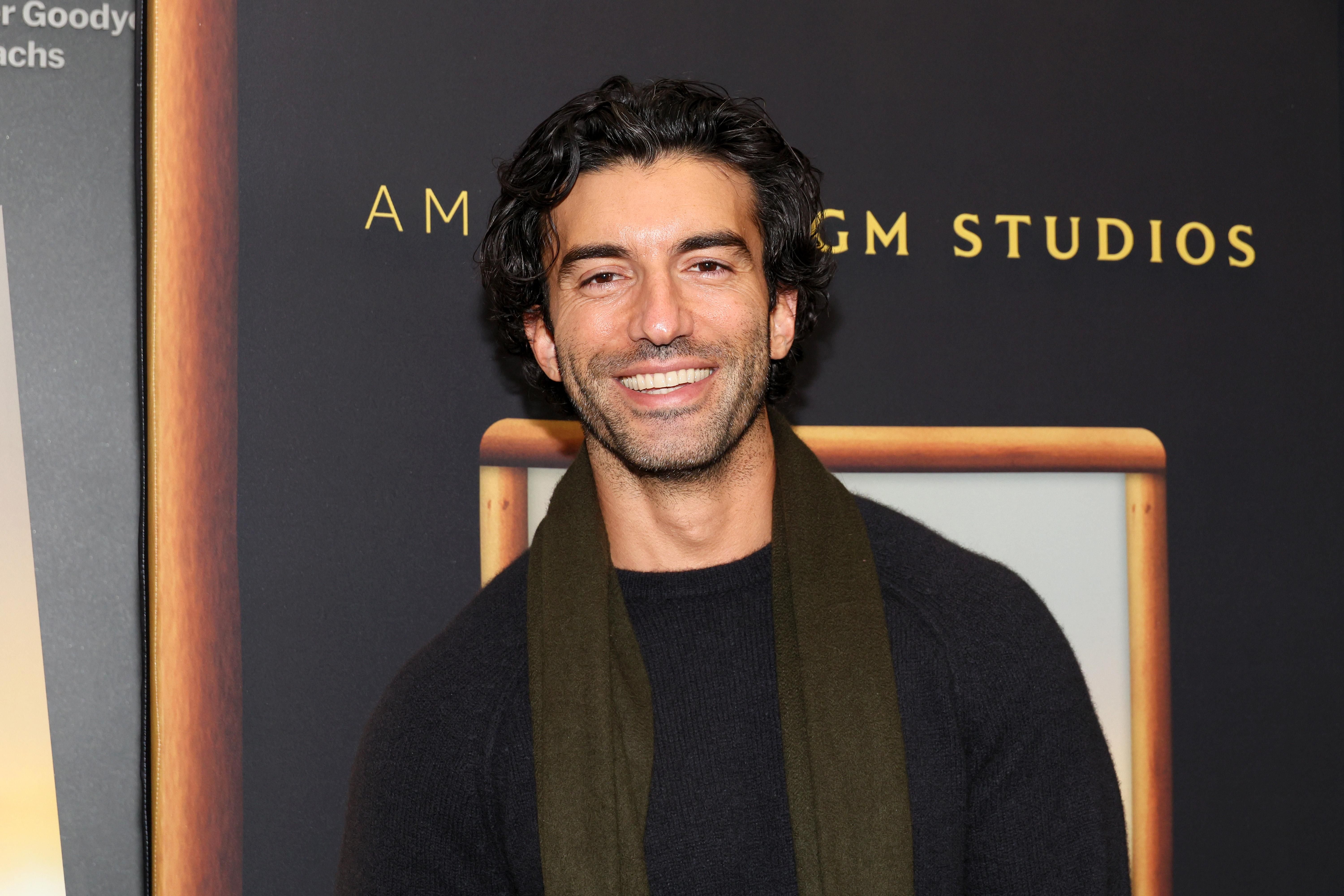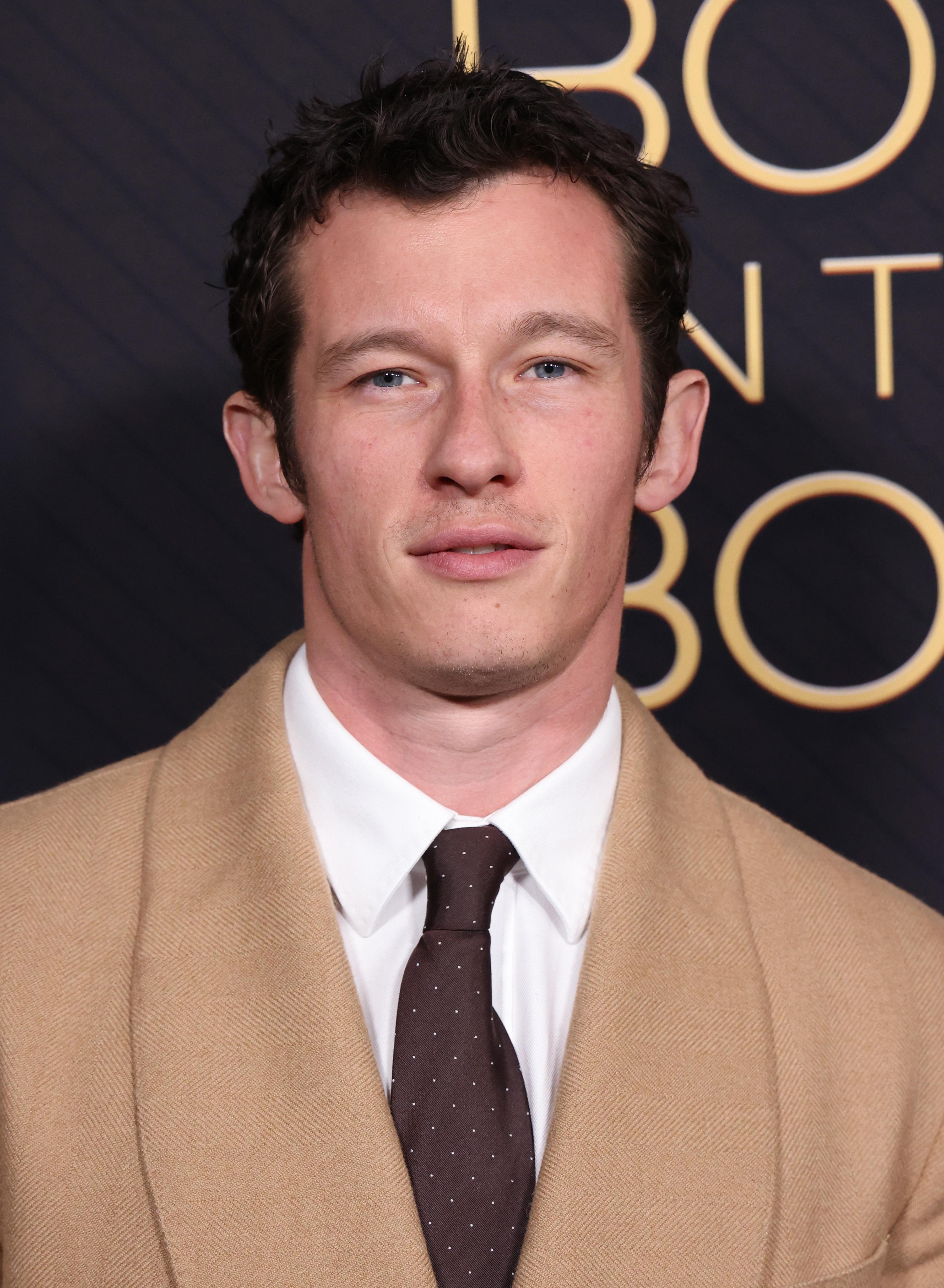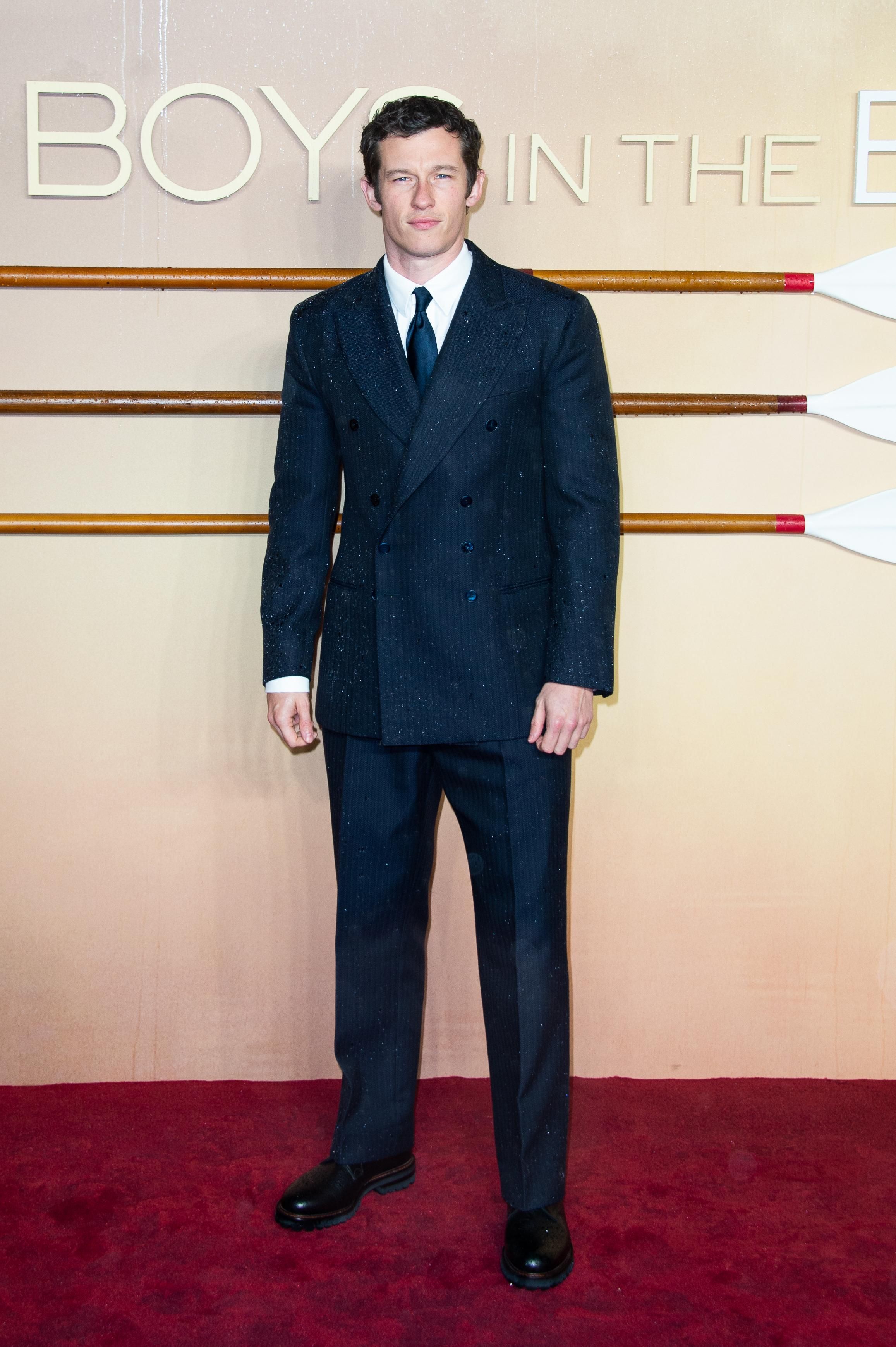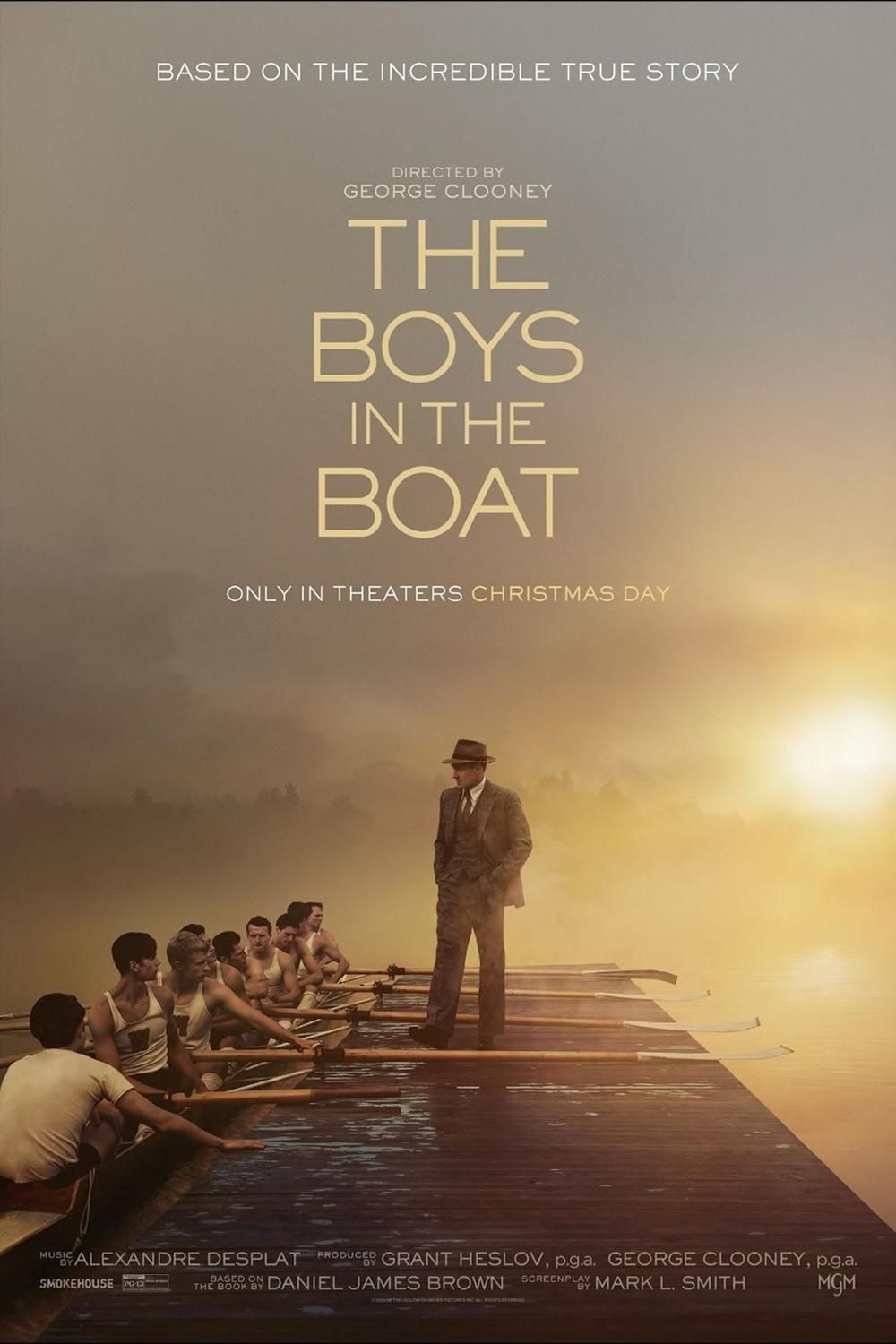Synopsis
Joe Rantz, now in his twilight years, finds himself reminiscing as he watches his grandson row. His thoughts drift back to 1936, when he was a destitute engineering student at the University of Washington. With no money for tuition and living out of an abandoned vehicle, life seemed dismal until his friend Roger Morris introduces him to a possibility: a place on the university's rowing team, which comes with boarding and a job. Armed with hope, Joe and Roger, though novice rowers, manage to secure spots on the junior varsity team under coach Al Ulbrickson, who is determined to earn a spot in the 1936 Olympics by defeating their formidable rivals from Cal.
Joe and his fellow oarsmen, a mix of unlikely candidates, face an arduous training regimen, learning the demands of rowing—a sport where the human body must adapt to incredible physical demands. With each stroke, they grow stronger, seeking harmony in their collective swing. As their personal narratives unfold, Joe's budding romance with Joyce provides solace, and his past confronts him during a turbulent encounter with his estranged father.
As pivotal races approach, the team faces adversity—not only from seasoned Eastern crews but from within their own ranks, grappling with the uncertainties and challenges of competition. Under Al's keen eye and the guidance of George Pocock, a master boat builder and mentor, Joe and his crew strive to transform raw potential into synchronized perfection. The stakes reach their apex at the Pacific Coast Regatta, where a stunning record-breaking victory propels them into the spotlight, laying bare the power of determination and teamwork.
The path to the Berlin Olympics is fraught with financial hurdles, compelling the community to rally and support their rowers. Once in Germany, the challenges continue, exacerbated by illness among the crew. Yet, in the face of such daunting odds and against a background of political tension, their resolve sharpens. Set against an Olympic landscape fraught with historical significance, Joe and his teammates must push past their limits and themselves, driven by an unyielding spirit to succeed.
Carrying the weight of national expectations and with Hitler's presence casting a formidable shadow, their final race becomes a testament to unity and resilience. Defying obstacles at every turn, Joe's team strives for poetic symmetry on the water, their singular aim: triumph in the face of overwhelming opposition.
With a stirring blend of personal struggle and collective courage, Joe's journey captures the essence of an era, where his eight-man team emerged not just as champions but as a singular, harmonious entity. As the scenes of yesteryear fade, the elderly Joe concludes his stories, a living testament to the notion that great strength is found in the bonds we forge and the struggles we endure together.
Argument
The cinematic tale of is one of perseverance, hunger for success, and the unyielding spirit of team camaraderie, all spearheaded by the emotive journey of Joe Rantz. As an elderly Rantz watches with nostalgia while his grandson rows, he drifts back to 1936—a pivotal time when his life transformed from destitution to Olympic glory. Joe, a young engineering student at the University of Washington (UW), is a portrait of resilience, enduring abject poverty as he inhabits an abandoned car and subsists on canned food, with looming tuition payments threatening his academic endeavor. Yet, the glimmer of hope shines when his fellow student, Roger Morris, informs him about the opportunity to join the highly coveted 8+ rowing team that promises jobs and accommodation.
Morris, portrayed by Sam Strike, shares Rantz's desperation, and together, they navigate their way onto the JV rowing team, marking the start of a remarkable journey under the stewardship of Coach Al Ulbrickson. Portrayed by Joel Edgerton, Ulbrickson is under tremendous pressure to outshine the Cal team and secure a spot for the 1936 Olympics—a personal quest as it is for many striving young rowers. But here lies an intriguing argument: Coach Al, with the support of assistant coaches Tom Bolles and Brown, advocates a taxing and punishing training regimen, demanding rowers to surpass natural human limitations, emphasizing that a rower must extract up to 8 liters of oxygen per minute—twice the normal capacity. By maneuvering this psychological and physical battleground, Joe and his peers find themselves absorbed into the rigors of the sport.
as Joe embarks on a romantic endeavor with classmate Joyce. This relationship acts as a grounding anchor for Rantz amidst the escalating challenges, both within the sporting realm and personal tribulations. The revelation of his past, a father who abandoned him, adds an additional layer of emotional conflict and further personifies Joe's inner struggle. Enter George Pocock, the sage racing-shell builder, serving as Joe's mentor. With Pocock's guidance, Joe learns that the essence of rowing extends beyond mere athleticism—it is about a deeper connection with the boat and with himself.
, a critical testing ground where nerves and strategy collide. Here, Ulbrickson must enact quick judgment, relying on his JV team over a seasoned varsity crew that falters beyond 34 strokes per minute. Astutely, he introduces Bobby Moch, the astute yet rebellious coxswain—an unpopular but necessary choice that pays dividends as they set a new course record, elevating campus hearts and Joe's personal aspirations to new highs.
The ambitions of Coach Al reach their zenith at the Poughkeepsie Regatta, where significant stakes align the team’s future with Olympic aspirations. Ulbrickson, with the weight of the institution's expectations on his shoulders, risks his career by promoting the talented yet unpolished JV crew over the veterans, aware that failure would cast him swiftly under scrutiny. It is here that Joe confronts ghosts of his past—a frosty encounter with his estranged father impacts his morale, leading to poor performance. Though tempted to abandon his path, Pocock's wisdom empowers Joe to find solace in unity with his crew, insinuating a recurring thematic element: the boat, embodying purpose and collective identity.
As the plot progresses towards its climax, . Al Ulbrickson's strategy to utilize energy conservation and tactical acceleration proves pivotal during the Olympic trials despite adversities. The ultimate showdown in Berlin presents a politically charged tension under Nazi scrutiny. With hope waning, as the health-compromised Hume falters, the determined crew pushes against unfair disadvantageous lane assignments chosen by favoritist regimes supportive of the host German team. Yet, by adhering closely to Al's couldn't-fail strategy, employing a steady pacing leading to a powerful sprint finish, the team triumphs in a breathtaking photo finish, transcending socio-political barriers in a resounding victory.
.
The film doesn't just celebrate athleticism; it highlights the profundity of camaraderie, the unyielding human spirit, and the beautiful struggle for identity and belonging that is as pertinent today as it was back then. After the tumultuous journey, the poignant parallels between Joe's past and his grandson’s budding journey in the present intertwine, echoing an eternal truth—like the tightly-knit rowing crew, life is about unity, trust, and embracing each stroke with valor.
Cast

Joel Edgerton
Coach Al Ulbrickson

Callum Turner
Joe Rantz

Peter Guinness
George Pocock

Sam Strike
Roger Morris

Thomas Elms
Chuck Day

Jack Mulhern
Don Hume

Luke Slattery
Bobby Moch

Bruce Herbelin-Earle
Shorty Hunt

Wil Coban
Jim McMillin

Tom Varey
Johnny White

Joel Phillimore
Gordy Adam

James Wolk
Coach Tom Bolles

Hadley Robinson
Joyce Simdars

Courtney Henggeler
Hazel Ulbrickson
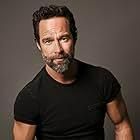
Chris Diamantopoulos
Royal Brougham

Glenn Wrage
Coach Ky Ebright

Edward Baker-Duly
Benjamin Billings
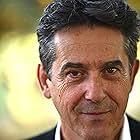
Adrian Lukis
Jay Ellis
Multimedia


